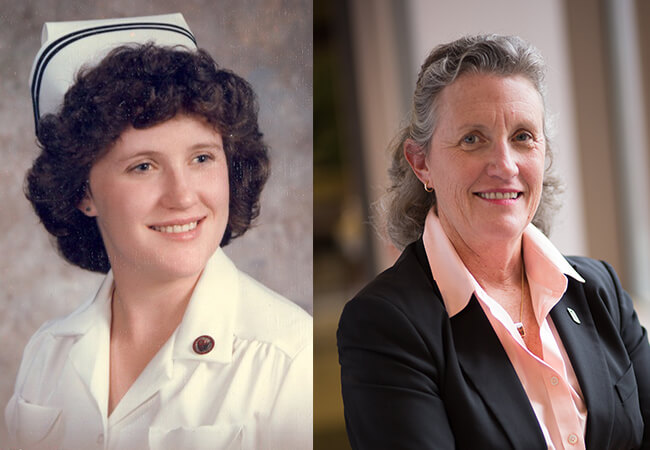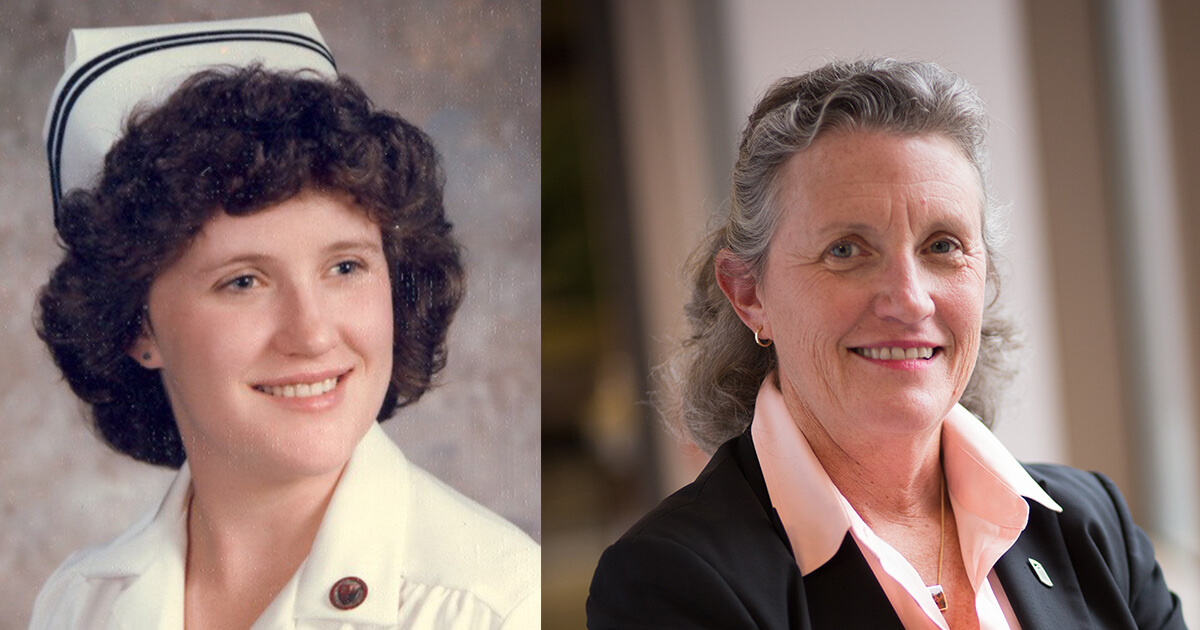
Jul 06, 2018
Nursing Journeys: Maintain Your Integrity and Seize Opportunities, Urges Nursing Dean
 “Nursing Journeys” is a profile series featuring Action Coalition leaders discussing their career paths and reflecting on the lessons they’ve learned along the way.
“Nursing Journeys” is a profile series featuring Action Coalition leaders discussing their career paths and reflecting on the lessons they’ve learned along the way.
Jane M. Kirschling, PhD, RN, FAAN, is dean and professor at the University of Maryland School of Nursing and director of the University of Maryland, Baltimore Center for Interprofessional Education. She also serves as co-lead of the Maryland Action Coalition and helped to found Action Coalitions in Maine and Kentucky.
Why did you decide to become a nurse?
My parents emphasized getting a university education and I enjoyed the sciences, so pursuing a nursing degree seemed like a good idea when I graduated from high school in 1976. Nursing is such a versatile career that I never regretted my decision.
Can you describe the journey you went on to get from that decision to where you are today?
I have been fortunate to have family members and nursing colleagues who supported my career through mentorship and advocacy. While I was completing my BSN degree at Viterbo College [since renamed Viterbo University] my older brother strongly encouraged me to pursue a graduate degree in nursing. I fell in love with mental health nursing during my junior year and wanted to continue this course of study. Fortunately, Indiana University School of Nursing was willing to admit a new graduate to their community psychiatric/mental health master’s program. After a semester, they admitted me to their doctoral program.
After completing my doctorate in 1984, I accepted work as a professor and then associate dean of the Oregon Health Sciences University School of Nursing. It was here that I shifted my career path to academic administration. Later on, I worked as associate dean for academic affairs at the University of Rochester School of Nursing. I then worked as the dean of nursing at the University of Southern Maine College of Nursing and Health Professions, the University of Kentucky College of Nursing, and now, at the University of Maryland School of Nursing. In my current position I also serve as the director for the Center for Interprofessional Education at the University of Maryland, Baltimore, where we prepare students studying health, law, and human services to work collaboratively on interprofessional teams.
What impact did the Institute of Medicine’s Future of Nursing report have on you?
The Future of Nursing report has served as a guidepost for my work. I was fortunate to be able to co-found the Maine and Kentucky Action Coalitions, and I currently help to lead the Maryland Action Coalition. Each of these coalitions have provided a strong voice for nursing education and practice and created a “bridge” for nursing leaders to come together to advance the report’s recommendations.
Of all you have accomplished, what are you most proud of?
In each of my dean positions, I have successfully grown enrollment in the nursing programs in response to the needs of the health care industry. This has required an unwavering commitment to advocate on behalf of patients and communities for access to a well-educated nursing workforce.
What is the most important action that nurses can take to lead the way to improve health and health care in America?
Nurses need to be persistent in advocating for the needs of the patients and communities they serve.
This includes holistically understanding the social determinants of health and advocating to elected officials and other key decision-makers the importance of implementing models of care that optimize health care outcomes within a framework of financial accountability.
What advice do you have for the next generation?
To all who are choosing nursing as their way to make a difference in the world, remember to care for yourself so that you can care for others. Maintain your integrity, which is so important when caring for patients. Make a commitment to lifelong learning. Moreover, do not shy away from opportunities that will present over the course of your career.
